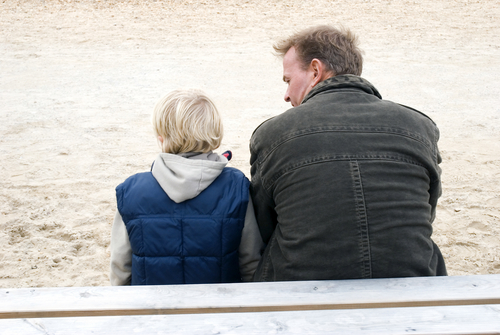Pre-Game Pep Talk's Influence on Performance
By Dan Peterson, TeamSnap's Sports Science Expert
Your kids want you to be proud of them. This need for a parent’s approval can be a powerful or destructive force when it comes to youth sports. When we communicate goals for our budding superstars, the wording we choose can make all the difference. New research out of Ithaca College shows the effect parents can have on their kids’ game-time anxiety, which can directly impact their performance and overall enjoyment of the game.
Miranda Kaye, a professor in the Department of Exercise and Sport Sciences at Ithaca, knew from previous research that a coach exerts the primary influence on a team’s attitude and confidence. But, she noticed that hardly any studies had looked at the pre-game conversations that parents have with their athletes.
"I think people intuitively know that what parents do matters, but it's never been looked at," said Kaye.
She and her team, including Amy Frith, associate professor in the Department of Health Promotion and Physical Education, and Justine Vosloo, assistant professor in the Department of Exercise and Sport Sciences, gathered 73 pairs of competitive athletes, ages 6-18, and at least one of their parents, in sports including swimming, tennis, gymnastics, bowling, wrestling, cross-country and indoor track.
On the day before a big game or competition, both the parent and the athlete were each given a survey to capture their goals for that event and their level of nervousness. They were each asked if they wanted to (or wanted their child to) “outperform their best performance to date”, “perform no worse than they had in the past,” “outperform their opponent,” or “perform no worse than their opponent.”
Anxiety levels of the athletes were measured along three scales; worry, amount of concentration disruption and physical symptoms (tension, nausea, headache, etc.)
Phrasing the performance goal questions this way reflected the work of Stanford psychologist Carol Dweck, known for her Achievement Goal Theory. She has defined two styles of learning: Mastery and Performance. A child with a Mastery focus is more concerned and motivated by their own achievement compared to their individual growth, not that of others. A young athlete with a Performance mindset always uses their peers as measuring sticks for their own progress.
By asking the kids and their parents if they want to beat or at least do as well as their personal best, Dr. Kaye was looking for a Mastery mindset. If the focus was more on how they compared to their opponents, then they were using a Performance mindset.
Here’s where it gets interesting. A parent’s performance expectations, and especially how they were communicated, predicted their child’s level of anxiety. When a parent set a goal to outperform (known as performance-approach) or avoid doing worse than an opponent (performance-avoidance), the level of worry increased for their young athlete.
However, the parents who set a goal for their kids to beat their personal best (mastery-performance) or at least achieve their previous best form (mastery-avoidance) did not cause any increase in their kids’ anxiety levels.
A subtle change in pre-game conversation from “you need to beat those guys” to “you need to beat your personal best” can make all the difference in maintaining your child’s confidence.
"You might think that's a really positive thing for the child [to encourage them to win], but that's creating a lot of worry [for the kid] as well,” said Dr. Kaye. “I don't think parents are necessarily thinking about that kind of thing."
She would like to continue this line of research to find out if this cause and effect works in the other direction, affecting the parent’s level of anxiety. "I think there are a lot of potential implications of a parent who's feeling really anxious before their child competes,” said Kaye. “What's the effect of that on their child?"
For now, it makes sense for parents to choose their words carefully, always focusing on incremental individual performance progress rather than just beating the other guy.
NEW! Free Sports Organization Resources
All of TeamSnap's ebooks, articles, and stories in one place. Access Now
Similar Articles:

Pete Rose and the Link Between Competitive Athletes and Gambling
By Dan Peterson, TeamSnap's Sports Science Expert …
Read More

Pre-Game Pep Talk's Influence on Performance
By Dan Peterson, TeamSnap's Sports Science Expert …
Read More

The Surprising Amount Of Green Exercise Needed For A Better Mood
By Dan Peterson, TeamSnap's Sports Science Expert. One…
Read More
